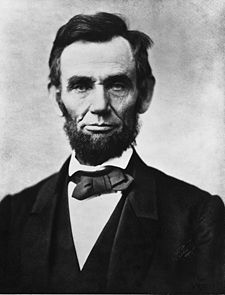Big Small Things
 I just finished an excellent book written some 50+ years ago by noted author Jim Bishop. The book was entitled The Day Lincoln Was Shot . Mr Bishop subsequently wrote a similar book about the assassination of President Kennedy. Much of the information was at least familiar to me and some very well known.Things like the who, the what, the where and to a degree, the why are somewhat common knowledge.
I just finished an excellent book written some 50+ years ago by noted author Jim Bishop. The book was entitled The Day Lincoln Was Shot . Mr Bishop subsequently wrote a similar book about the assassination of President Kennedy. Much of the information was at least familiar to me and some very well known.Things like the who, the what, the where and to a degree, the why are somewhat common knowledge.
I was still very intrigued by the thoroughness of Mr Bishop’s work (research of a number of years) and the ability to immerse this reader in 19th century Washington, D C. and its environs.
He began the book early in the morning of April 14,1865. Approximately, 25 and one half hours later, it ended with Mr Lincoln’s death and a brief epilogue detailing what happened to those involved most intimately with the plot and its consummation.
Perhaps, what intrigued me most was the small details, things that went unnoticed at the time, but which played a vital role in what transpired. There were many but I will attempt to discuss only a few of them.
As you read these, attempt to place them in the context of the time and allow yourself to wonder, if they had been just slightly different, would the tragedy have still occurred.
Some days before April 14th, a small group had reserved seats for a play at Ford’s Theatre. They failed to show by the end of act I, so as was theatre policy, their seats were given to someone else. When the party finally arrived, the ticket seller Thomas Raybold was chagrined and attempted to atone. As fate would have it, the presidential box was the only one available. When he arrived with his partyMr Raybold, iscovered the door was locked but did not attempt ocate a key. Employing somewhat relentless force, he managed to break the lock and seat his patrons. In the excitement, he forgot about the broken lock on the presidential box and did not report it.Some four weeks and three days later, a man named Booth would have easy access.
The second instance involves a law enforcement officer named John F Parker, a rather dissolute man with an inferior work record. He was assigned to the 4PM -12 midnight shift as Mr Lincoln’s protection . For starters he was three hours late that night and was described at one point as half- amused, half-blank that evening. After getting Mr Lincoln and his party settled, he manned his post outside for an hour or so. At 9 pm became bored, went outside and invited an acquaintance next door for a drink. Mr ;Lincoln’s box was thus unprotected.He was not seen again until 10am on April 15th. He was sent home and remained a policeman in good standing for three years.
And yes, April 14th was Good Friday that year. The vagaries of history are rich indeed. Do you not wonder if those referred to above, along with others similar to them had any realization of the part they played in the death of a president. It seems proven again, that history that is well written trumps fiction most any day.
-
Archives
- April 2016 (1)
- February 2012 (1)
- September 2011 (5)
- August 2011 (6)
- June 2011 (7)
- May 2011 (4)
- April 2011 (3)
- March 2011 (8)
- February 2011 (6)
- January 2011 (5)
- October 2010 (3)
- September 2010 (9)
-
Categories
- Animals
- Bible study
- Business
- Children
- Christian living
- Christianity
- church
- Culture
- economy
- education
- Energy
- Entertainment
- Family
- Food
- Foreign Policy
- Health
- History
- Holidays
- International politics
- Legal system
- Life
- Life and Death
- Literature
- Local Politics
- Media
- military
- Music
- Politics
- Reading
- Religion
- Shopping
- Sports
- State Politics
- Technology
- Television
- Transportation
- Uncategorized
- Weather
-
RSS
Entries RSS
Comments RSS